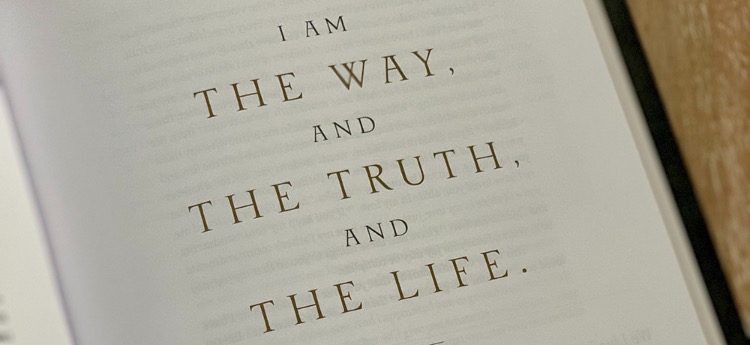
Some Ecumenical Reflections on an important text
Churches Together in Britain and Ireland (CTBI) publish a series of articles relevant to ecumenical and inter faith dialogue.
Dr Ian Watson, County Ecumenical Officer for NWCT, argues that: “While John 14:6 emphasises the unique role of Jesus as the way to God, it does not necessarily rule out interfaith dialogue. Interfaith dialogue is a respectful and constructive conversation between people of different religious beliefs, allowing them to learn from and understand each other's perspectives. It does not necessarily require compromising one's own beliefs, but rather aims to foster mutual respect, understanding, and cooperation. While Christians may hold the belief that Jesus is the way to God, interfaith dialogue can still be pursued to promote understanding, peace, and cooperation among people of different faiths. Churches Together in Britain and Ireland (CTBI) have produced a series of articles to explore this beautiful verse in John 14:6 which, I found, opens up different perspectives and a depth to the text I had not previously appreciated.”
Peter Cowell from CBTI says:
“Inter Faith Relations and dialogue have become an important part of how Christians live out their faith in the world. Friendships are built in local communities and faiths come together at important times in the life of communities and in the life of the nation. The presence of other faiths at the funeral of Her Majesty Queen Elizabeth II was the most visible sign that religious pluralism is an irreversible feature of Western society.
“But how might Christians take full account of this pluralism and how should they understand the relationship of the Church to other faiths? This is not a new question; indeed Christianity came to birth in the context of religious pluralism within the Roman Empire. However, these theological reflections came to have a particular focus when churches and mission agencies proclaimed the gospel in a context where another religion was dominant. And this colonial history is an important issue as we seek to live as Christians in a diverse and plural society.
“Many Christians will look to the Bible to provide answers and this is surely an important starting point. One scriptural text that often surfaces in discussions with Christians about inter faith dialogue is to be found in the Gospel of John: Thomas said to him, ‘Lord, we do not know where you are going. How can we know the way?’ Jesus said to him, ‘I am the way, and the truth, and the life. No one comes to the Father except through me. If you know me, you will know my Father also. From now on you do know him and have seen him.’ (John 14.5-7)
“Many have interpreted this text to mean that faith in Jesus Christ as the Son of God is the only way to salvation. However, over the last 30 years or more scholars and theologians have looked deeper into this text and a variety of different understandings have emerged. These have come not only from Western Theologians but also from those who have been nurtured in the Christian faith in the Global South where they may have undertaken their theological study in a context where Christianity is a minority faith.”
Over the next few months CTBI will be publishing a series of papers, articles and reflections on this text from different perspectives. These will include theologians from the Global South and from different Christian traditions within the Churches Together family.
Click here for the link to the first set of articles that have been posted.
Photo: courtesy of CBTI